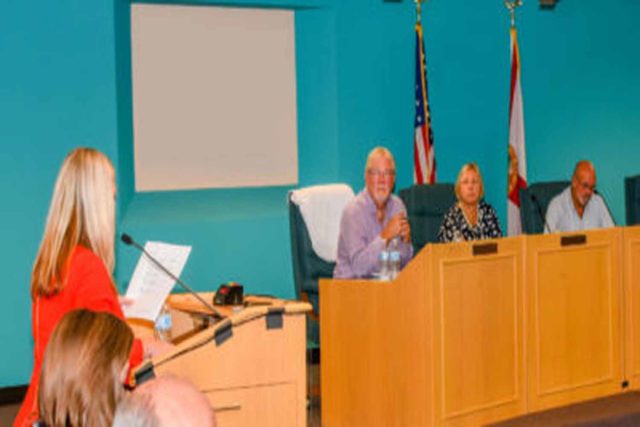How does Florida regulate and authorize licenses?
A “license” to regulate professions and occupations means any permit, registration, certificate, or license issued in Florida. An occupational license is a privilege accorded by the state or its subdivisions to conduct a business at a particular location and is not a property right protected by substantive due process; the denial of such license does not prevent the business owner from pursuing a lawful occupation but merely stops the business from operating at a particular location. Ammons v. Okeechobee County, 710 So. 2d 641 (Fla. 4th DCA 1998).
On July 1, 2021, the Florida Legislature passed Section 163.211 into law, which prevents any county, municipality, or other political subdivision of Florida from implementing additional licensing requirements for most occupations. Therefore, a prospective applicant only needs to satisfy state statutory requirements.
Need help receiving, renewing, or defending your license? Schedule your consultation today with a top administrative law and licensing attorney.
Which laws and regulations apply to Florida notary licenses?
In Florida, notary services are regulated by the Governor’s Office and the Florida Department of State, Division of Corporations.
The primary law governing notary services licenses is Chapter 117 of the Florida Statutes, which outlines the appointment, qualifications, and duties of notaries public. Additionally, the Florida Administrative Code Rule 1N-6 provides further guidance on the application, retention, and other regulatory matters related to notary services licenses.
The Governor’s Office is responsible for appointing notaries public, while the Department of State oversees notary education, processing applications, and maintaining records of notary commissions. In addition to state-specific requirements, notary services in Florida are subject to the Uniform Law on Notarial Acts (ULONA).
What are the application and retention requirements for notary licenses in Florida?
Application Requirements:
According to Florida Statute §117.01, applicants must be at least 18 years old, a legal resident of Florida, and possess the ability to read, write, and understand English. Additionally, applicants must complete a notary education course approved by the Department of State, which is mandatory for first-time applicants and those renewing their commission.
Upon meeting the eligibility criteria and completing the required education, applicants must submit a notary application, a signed and notarized Notary Public Bond, and pay the application fee. The application is then reviewed, and if approved, the applicant will receive a notary commission certificate.
Retention Requirements:
To retain their notary services license, notaries public in Florida must adhere to the provisions of Chapter 117. These requirements include maintaining a notary journal, using a notary seal, and avoiding conflicts of interest or prohibited acts.
Notary commissions in Florida are valid for four years, after which notaries must renew their commission. To renew, notaries must complete an updated notary education course, submit a new application, and obtain a new notary public bond. Failure to comply with the renewal requirements may result in the expiration of the notary commission and the loss of the notary services license.
To determine whether you meet the requirements for a notary license, please contact our office to set up your initial consultation.
Can the Division of Corporations’ license decision be appealed?
Yes, an adverse license decision made by the Division of Corporations is appealable. The authority for appealing such decisions comes from the Florida Administrative Procedure Act (APA), Chapter 120 of the Florida Statutes. Specifically, the right to appeal derives from Florida Statutes §120.569 and §120.57. The APA establishes the framework for challenging agency actions, such as licensing decisions, through administrative hearings and judicial review.
If an applicant or licensee receives an adverse decision from the Division of Corporations, they may request an administrative hearing to challenge it. The request for a hearing must be submitted within the timeframe specified in the agency’s notice, which is generally 15 days from the date of the notice, as provided in Section 120.569(2)(a), Florida Statutes.
The administrative hearing process commences with submitting a petition for a hearing to the agency. The petition must comply with the requirements outlined in Rule 28-106.201, Florida Administrative Code. If the petitioner qualifies for an administrative hearing, the case is referred to the Division of Administrative Hearings (DOAH) and assigned to an administrative law judge (ALJ).
The ALJ conducts the hearing, like a trial, with both parties presenting evidence and testimony. After the hearing, the ALJ issues a recommended order, which includes findings of fact, conclusions of law, and a recommendation for a final decision. The Division of Corporations then reviews the recommended order and issues a final order, either adopting, modifying, or rejecting the ALJ’s recommendations.
Suppose the petitioner is unsatisfied with the Division of Corporations’s final order. In that case, they can seek judicial review by filing a notice of appeal with the appropriate District Court of Appeal, as provided in Section 120.68, Florida Statutes. The court reviews the case to determine if the agency’s decision follows from competent, substantial evidence and complies with the law.
Have more questions about a professional licensing-related situation?
Crucially, this overview of notary licenses does not begin to cover all the laws implicated by this issue or the factors that may compel the application of such laws. Every case is unique, and the laws can produce different outcomes depending on the individual circumstances.
Jimerson Birr attorneys guide our clients to help make informed decisions while ensuring their rights are respected and protected. Our lawyers are highly trained and experienced in the nuances of the law, so they can accurately interpret statutes and case law and holistically prepare individuals or companies for their legal endeavors. Through this intense personal investment and advocacy, our lawyers will help resolve the issue’s complicated legal problems efficiently and effectively.
Having a Jimerson Birr attorney on your side means securing a team of seasoned, multi-dimensional, cross-functional legal professionals. Whether it is a transaction, an operational issue, a regulatory challenge, or a contested legal predicament that may require court intervention, we remain a tireless advocate every step of the way. Being a value-added law firm means putting the client at the forefront of everything we do. We use our experience to help our clients navigate even the most complex problems and come out the other side triumphant.
If you want to understand your case, the merits of your claim or defense, potential monetary awards, or the amount of exposure you face, you should speak with a qualified Jimerson Birr lawyer. Our experienced team of attorneys is here to help. Call Jimerson Birr at (904) 389-0050 or use the contact form to set up a consultation.


We live by our 7 Superior Service Commitments
- Conferring Client-Defined Value
- Efficient and Cost-Effective
- Accessibility
- Delivering an Experience While Delivering Results
- Meaningful and Enduring Partnership
- Exceptional Communication Based Upon Listening
- Accountability to Goals











